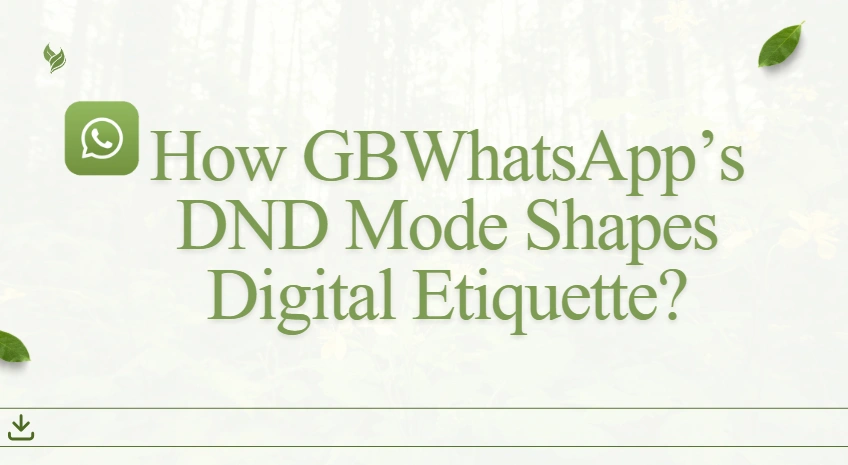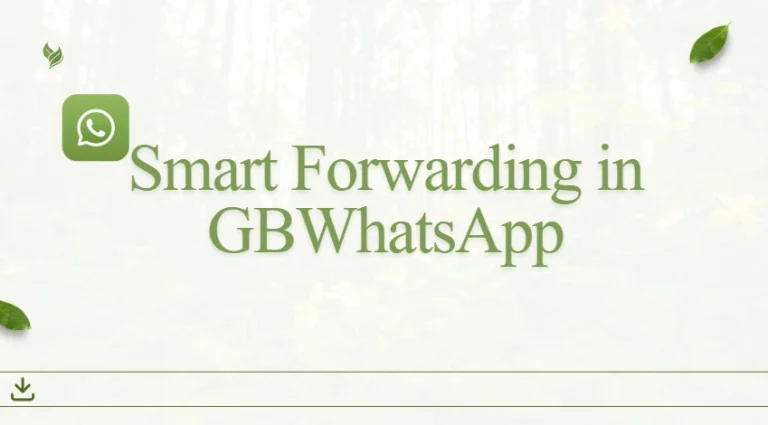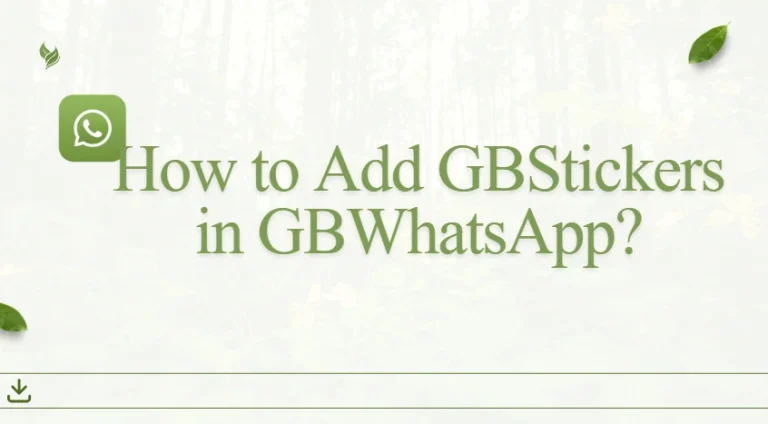How GBWhatsApp’s DND Mode Shapes Digital Etiquette
In a world where constant notifications blur the line between online and offline life, GBWhatsApp’s Do Not Disturb (DND) mode introduces an underrated shift in digital behavior. It’s more than a technical function — it’s a statement about attention, presence, and respect in modern communication.
Redefining Boundaries in the Chat Era
DND mode on GBWhatsApp allows users to disconnect from message alerts while keeping other phone activities active. This seemingly simple feature encourages users to take ownership of their time instead of being driven by incoming messages. It normalizes the idea that not every ping deserves an immediate reply — a small but meaningful cultural reset in our hyper-connected routines.
Focus Without Guilt
Turning on DND doesn’t mean being rude; it means being intentional. Many users employ GBWhatsApp’s DND during work hours, study sessions, or downtime, allowing themselves mental space without social pressure. The feature helps reshape our understanding of productivity and politeness — suggesting that silence, sometimes, is a form of respect.
Quiet Communication, Clearer Expectations
GBWhatsApp’s DND mode also plays a subtle role in setting clearer expectations between users. When someone doesn’t respond right away, it’s less likely to be interpreted as avoidance or disinterest. Instead, it reflects a shared understanding that availability is a choice, not an obligation — a small but profound shift in online etiquette.
The Emotional Relief of Digital Distance
Constant availability often leads to emotional fatigue. GBWhatsApp’s DND option quietly counters that by restoring a sense of control. It gives users permission to step back without fully disconnecting, offering emotional breathing room while maintaining digital connection — a balance that’s becoming essential in modern communication culture.
From a Feature to a Philosophy
In many ways, GBWhatsApp’s DND mode has become more than a utility; it’s a reflection of evolving digital manners. It invites us to treat our attention as something valuable — something that can be managed thoughtfully, not constantly demanded. As users embrace this mindset, they’re not just using a feature — they’re participating in a subtle but powerful redefinition of how we coexist online.





